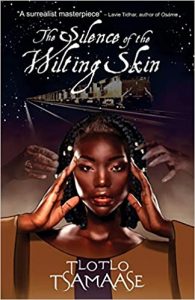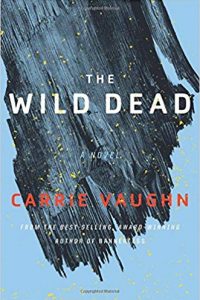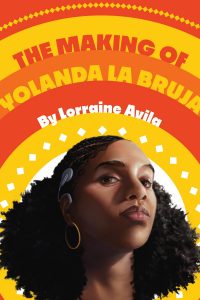Colleen Mondor Reviews The Silence of the Wilting Skin by Tlotlo Tsamaase
 The Silence of the Wilting Skin, Tlotlo Tsamaase (Pink Narcissus Press 978-1-939056-17-7, $12.00, 97pp, tp) May 2020.
The Silence of the Wilting Skin, Tlotlo Tsamaase (Pink Narcissus Press 978-1-939056-17-7, $12.00, 97pp, tp) May 2020.
The opening line of Motswana author Tlotlo Tsamaase’s searing novella hits readers hard and fast: “My Girlfriend was born on the train a week after her mother died,” she writes. From there the short chapters fly by as the unnamed narrator documents the train’s monthly arrival in her bisected city, carrying the dead to their brief visits with living family members who rush to glimpse them at the station. The narrator has not only family but a boyfriend, who lost his life saving her own, on the passing train. She considers it her duty and her joy to see them each month and is determined to ensure that their place on the train is maintained.
The Silence of the Wilting Skin is only partly about the train, however. Tsamaase has a larger story to tell, about colonization and partition, about how a people’s culture and tradition are vulnerable to attack and theft and, finally, how holding together a family can require difficult choices. What the narrator knows is that the most important decision you can make is never forgetting who you are and where you come from, even when events are moving so fast that neither seems certain, and everyone else seems all too willing to let those truths go.
Tsamaase’s prose is so intense, and she puts readers so deep into her narrator’s struggle, that the churning emotions that surround the plot can be overwhelming. As her ancestors visit her in her sleep, driving her to exhaustion, and the inhabitants of the city’s west side move against the rail line, buying land, casting shiny promises and advertising improvements that mask the malicious intent of their plans, the pressure builds with each page. The narrator is shedding her skin, losing herself with increasing speed. Gaslighted by her brother, who is complicit in the new construction, and challenged by her frustrated sister-in-law, the narrator clings to the love of her girlfriend who is shouldering her own complicated story. (Remember, she was born to a dead woman.) In the end, the only thing that matters is protecting the train, not just because of what it means to its dead passengers, but also to all those who live in the east side of the city and have generations of stories firmly entwined with the train’s arrivals.
Lavie Tidhar blurbed The Silence of the Wilting Skin as “a surrealist masterpiece,” and in every way it has the feeling of a dream. There is not only what the narrator endures through the sleeping visits of her ancestors, but also the relentless and unreal manner in which The District on the Other Side of the City takes over her neighborhood. More than once the narrator questions her sanity as she fends off attacks against herself and her people. In this bewildering truth and artful metaphor that Tsamaase has constructed, I found each page to be gorgeously written and often profound. This is a novella that wraps in velvet a raft of loss and outrage that must be recognized. Ultimately, Tsamaase wants readers to know that what matters is the train and all it represents, and also the young woman who knows just how great the price will be if the train is forever stopped.
Colleen Mondor, Contributing Editor, is a writer, historian, and reviewer who co-owns an aircraft leasing company with her husband. She is the author of “The Map of My Dead Pilots: The Dangerous Game of Flying in Alaska” and reviews regularly for the ALA’s Booklist. Currently at work on a book about the 1932 Mt. McKinley Cosmic Ray Expedition, she and her family reside in the Pacific Northwest and Alaska. More info can be found on her website: www.colleenmondor.com.
This review and more like it in the January 2021 issue of Locus.
 While you are here, please take a moment to support Locus with a one-time or recurring donation. We rely on reader donations to keep the magazine and site going, and would like to keep the site paywall free, but WE NEED YOUR FINANCIAL SUPPORT to continue quality coverage of the science fiction and fantasy field.
While you are here, please take a moment to support Locus with a one-time or recurring donation. We rely on reader donations to keep the magazine and site going, and would like to keep the site paywall free, but WE NEED YOUR FINANCIAL SUPPORT to continue quality coverage of the science fiction and fantasy field.
©Locus Magazine. Copyrighted material may not be republished without permission of LSFF.







